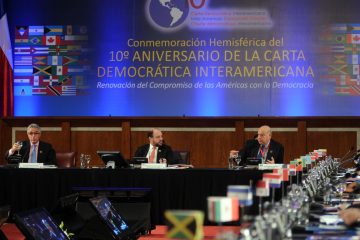
How are Human Rights Law being used in Latin American courts?
Researcher: Dr Ezequiel Gonzalez-Ocantos Until the 1980s and 1990s, judges in Latin America were inconsequential bureaucrats, playing a minor role in a legal system which left little room for interpretation. The arrival of a rights-centred legal worldview from Europe and the United States changed that. Courts in Latin America have become increasingly assertive, with their rulings effecting policy across a wide range of areas, including health care, immigration and the environment. How and why did this shift take place? This project aims to investigate this, and in particular the role of the Inter-American Court of Human Rights, which over the previous two decades has become increasingly influential in setting standards of state behaviour, and in setting the tone for domestic …
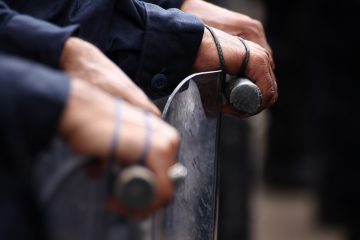
The Politics Violence Frontier
Researchers: Dr Elizabeth Frazer with Professor Kimberly Hutchings (Queen Mary University of London) Funder: John Fell OUP Research Fund What kinds of justifications do we have for deciding whether to act violently or non-violently? Where do we draw the line between political action and violent action? How do activists justify various forms of action? And does acting politically need a different kind of justification than acting violently? In the pursuit of social order, governments and states seek to justify, and to control, the use of force. Meanwhile, claims for justice, rights, or social change frequently lead to conflict with forces of ‘order’, and violent confrontation often results. The frontier between politics and violence is one of the most pressing political …
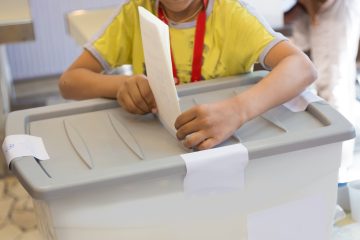
Ideology, Voting and Implicit Cognition
Researchers: Dr David Doyle, with Professor Catherine De Vries, Professor Kim Plunkett (Department of Experimental Psychology) and Janette Chow (Department of Experimental Psychology) Funder: John Fell Fund What is the relationship between parents’ political beliefs and their children’s attitudes? How do we develop our political attitudes, and how are our moral beliefs about the world formed? These questions are central to our understanding of politics, but we still don’t understand the development of the cognitive processes which shape our political attitudes and allegiances. This project takes methods and theory from experimental psychology and behavioural economics to shed light on a question which is central to our understanding of politics. Using specially created cartoons, which show two characters (“Timmy the Turtle” …
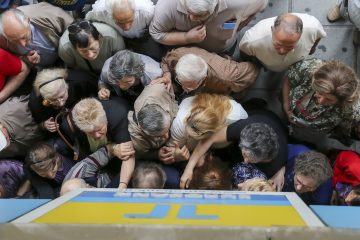
Who Owns the State: A Contemporary Theory of Public Ownership
Researcher: Dr Angela Cummine Funder: British Academy In Greece, national assets are up for sale. Everything from Athens’ water infrastructure, to the Olympic stadium, to the country’s main ports at Piraeus and Thessaloniki. As part of the bailout deal struck in July 2015, the proceeds of these sales must go into an independent fund to repay Greece’s international creditors. For many Greeks, this feels like selling off the family silver, only to hand the proceeds back to those demanding its sale. The programme was controversial, and only went ahead after major concessions, including that the privatisation fund be run from Athens and that part of its proceeds must be spent locally in Greece. Ultimately, the demand for local control and …
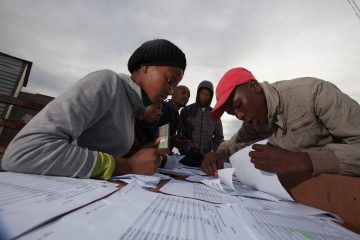
The Political Economy of Democracy Promotion Project
Researchers: Dr Nicholas Cheeseman and Dr Susan Dodsworth Funder: Westminster Foundation for Democracy Are efforts to promote democracy working? How can we improve the prospects for democracy across the world? Since the Cold War, there have been a proliferation of attempts to promote democracy across the world, whether in new democracies or countries that have returned to democracy after a period of authoritarian rule. However, we still have a relatively limited understanding of what does and doesn’t work in democracy promotion. Furthermore, the last few years have not been good for democracy. According to US think-tank Freedom House, 2015 was the 10th year in a row that an overall drop in global freedom has been recorded. It is essential that …
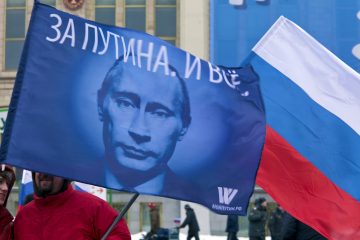
Nationalism, Democracy and Statebuilding in Russia and Ukraine
Researchers: Dr Paul Chaisty and Professor Stephen Whitefield Funder: The John Fell OUP Research Fund The current political crisis involving Russia, Ukraine and the West is rooted in complex historical understandings of state, national and regional identities. How do these national identities mobilise political support and how are they changing? Previous research suggests that the nature and strength of the political regimes in Russia and Ukraine will depend a great deal on the ways in which citizens and elites imagine their future – and how they attempt to bring that future into being. By conducting surveys in Russia and Ukraine, using representative samples of the populations of both countries, this project seeks to unpick the elements which make up the …
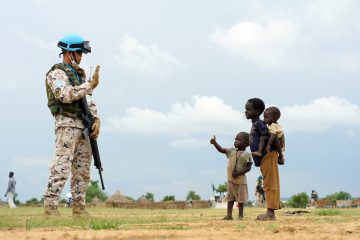
Measuring Peace Consolidation
Researcher: Professor Richard Caplan Funders: British Academy; UK Department for International Development Between 1945 and 2013, 105 countries suffered a civil war. Of these, more than half experienced a relapse into violent conflict after peace had supposedly been achieved. How do we recognise a stable peace in countries emerging from violent conflict? And how can those tasked with building peace and ending war measure their progress? This project looks at the ways in which peacebuilding organisations (such as the United Nations, NATO, the World Bank, and others) understand the elements of a stable peace and what it requires. What are the factors that contribute to post-conflict peace stabilisation? The project will also examine how peacebuilding organisations have assessed their progress. …
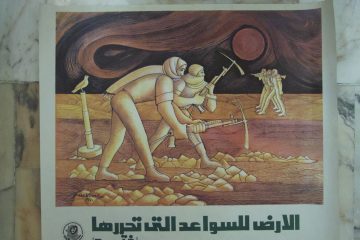
Teaching Contemporary Palestinian Political History
Researcher: Dr Karma Nabulsi Since 1948, the majority of the Palestinian people live as refugees. It is not only the people who are scattered across the region, and the rest of the world; with them are the memories, records and knowledge essential to understanding this contemporary history of Palestine, its people and its politics. Focusing on the three decade long revolutionary period of the 1950s, 60s and 70s, and sponsored by the British Academy, this project, has gathered original sources to create a university-level online curriculum through which to teach or learn about the Palestinian revolution through the eyes of the participants. The materials available through the project’s website are in both Arabic and English, extending the reach and value …










